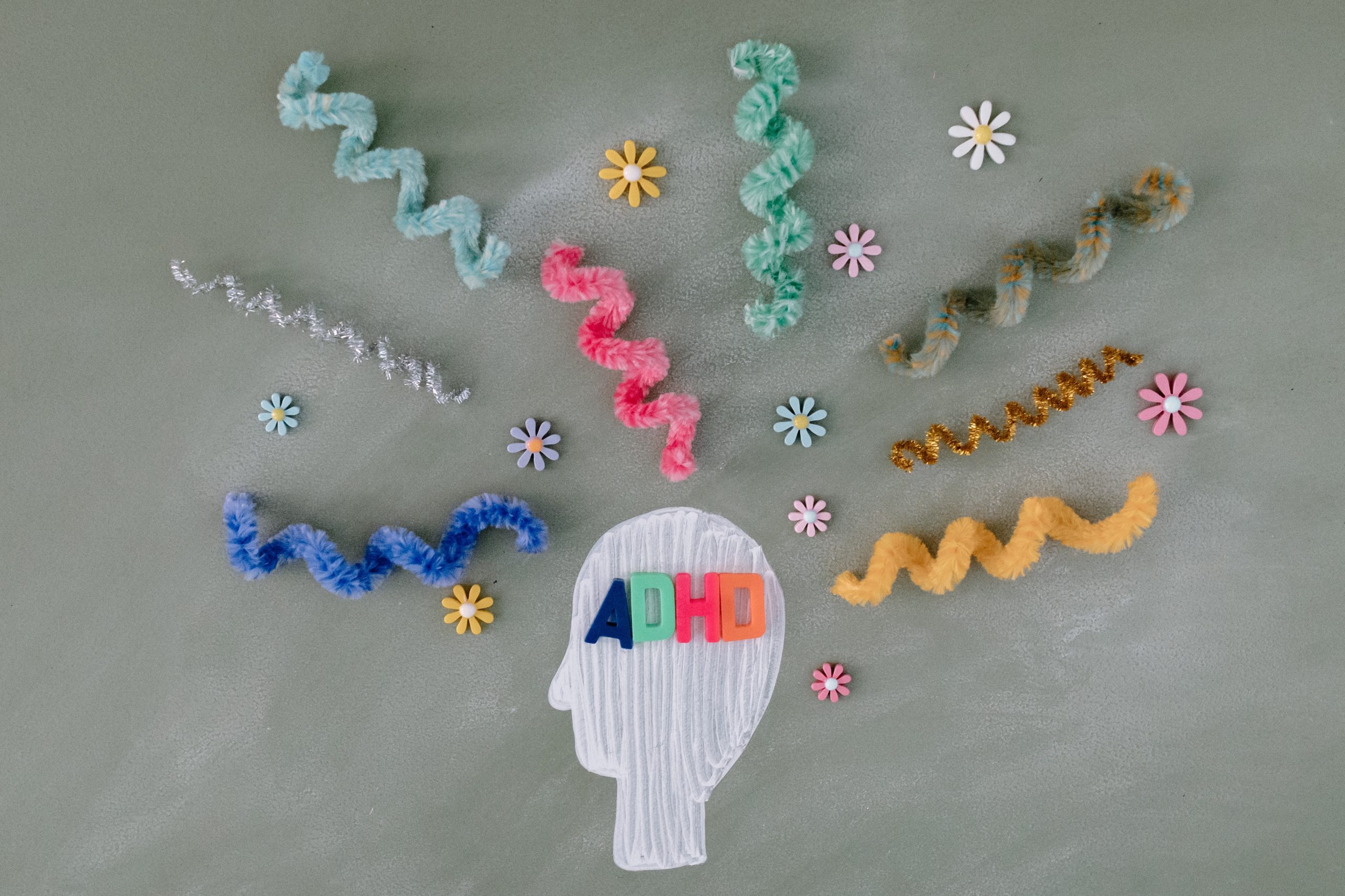
What is ADHD?
What is ADHD? By: Lisa and Letitia with help from Amelia and Sahar from Therapy House Brisbane


What is ADHD?
Attention Deficit Hyperactivity Disorder (ADHD) is a neurodevelopmental disorder that affects individuals’ ability to regulate their attention, impulses, and activity levels. ADHD typically begins in childhood and can persist into adulthood. ADHD can have a significant impact on a person’s academic, social, and occupational functioning if left untreated. ADHD can be diagnosed by assessment.
While ADHD can present challenges in various areas of life, it does not have to limit a person’s potential for success. Many successful people have been diagnosed with ADHD. These individuals have learned to work with their strengths and challenges and have developed strategies to manage their symptoms.
ADHD does not limit a person’s potential for success!
The three main symptoms of ADHD are:
- Inattention: Difficulty sustaining attention, being easily distracted, making careless mistakes, and struggling to follow instructions or complete tasks.
- Hyperactivity: Excessive physical activity and restlessness, such as fidgeting, running, climbing, or talking excessively.
- Impulsivity: Difficulty inhibiting or delaying responses or behaviours, such as interrupting others, blurting out answers, or acting without considering consequence.
It is estimated that more than one million Australians have ADHD, which makes ADHD the most prevalent neurodevelopmental disorder in Australia.
Has There Been an Increase in ADHD Diagnoses?
While there have been reports of an increase in ADHD diagnoses in Australia (and worldwide) in recent years, it is unclear whether this increase is due to an actual rise in the prevalence of ADHD or due to improved awareness and diagnosis of the condition. Also, changes in diagnostic criteria, environmental, societal and lifestyle factors are currently subject to research investigating the cause of the reported increase in ADHD diagnoses.
How Can an ADHD Diagnosis be Helpful?
There has been a growing recognition of the importance of identifying and treating ADHD in adults as well as children, and research on ADHD has continued to expand, with new treatments and therapies having been developed to help manage symptoms.
While many individuals who have (undiagnosed) ADHD intuitively compensate for challenges they experience in their day-to-day life, this often compounds these challenges. For example, individuals who are aware of having trouble meeting deadlines might start working on projects very early to meet their work demands. While this can be an effective strategy, it also means that these individuals take significantly longer to complete their work in comparison to their colleagues. This in turn can lead to perfectionistic traits, burn out, occupational or academic challenges, and can even trigger feelings of anxiety or inferiority (in fact, anxiety and mood disorders are common co-occurring conditions in individuals with ADHD).
An ADHD diagnosis can be helpful in multiple ways:
- Receiving a diagnosis can help explain the symptoms that an individual is experiencing and validate a person’s experience.
- A diagnosis can allow individuals to access academic or occupational accommodations that can help them succeed. For example, a student with ADHD may be eligible for extended time on exams or access to a quiet study space, while an adult with ADHD may be able to request workplace accommodations such as flexible work hours.
- An ADHD diagnosis can make it easier to access appropriate treatment options (such as psychotherapy and/or medication).
- An ADHD diagnosis can help reduce the stigma associated with symptoms such as distractibility, impulsivity, and hyperactivity. This can help individuals feel more accepted and less judged by others.
Pathway to Diagnosis
ADHD assessment typically involves a comprehensive evaluation by a team of healthcare professionals, including psychologists, paediatricians and/or psychiatrists. The assessment typically includes a clinical interview (to gather information about the individuals’ symptoms, medical and family history), and rating scales and questionnaires (depending on age, completed by the individual, family members, or teachers to assess the severity of symptoms and their impact on daily life). In addition, a comprehensive cognitive assessment and/or physical examination may be conducted to rule out other conditions that may cause or exacerbate any of the symptoms.
How will ADHD be diagnosed?
When you see practitioners who are involved in the diagnostic process, there is:
- Information to be gathered – both strengths and challenges.
- Diagnostic criteria to be assessed.
- Diagnostic deficit language to be navigated.
- Human experience to be considered.
- Sensitive topics to be juggled.
It is important to know that every practitioner may have different ways of working, but ultimately there are strict and stringent requirements in place for the diagnosis of any condition, including the way in which it is written and referred to. Whilst we may need to write things a certain way for formal reporting, know that you (or your child) are more than a diagnosis. Your strengths matter and your uniqueness is something necessary and celebrated in this space and hopefully in the world!
Treatment and Interventions for ADHD
Treatment may include therapy, medication, or a combination of both, and can help individuals manage their symptoms and improve their functioning.
Psychologists (endorsed, general or provisional) are not licensed to prescribe pharmaceuticals; depending on age, you need a paediatrician or psychiatrist on your treatment team to discuss medication as treatment option. Psychologists can offer support with non-pharmaceutical intervention, tailored to the individual client, their needs, and resources available within their support network. Work with a psychologist following an ADHD diagnosis may for example include:
- Psychoeducation around ADHD to help understand the diagnosis.
- Cognitive Behavioural Interventions, especially in the presence of co-occurring symptoms of anxiety and/or depression.
- Emotion regulation strategies.
- Problem solving and self-advocacy
- Support in the creation of visual aids and/or routines.
Your psychologist will closely work with you to understand which approach will be best for you or your family. A huge part of working with your psychologist through an ADHD diagnosis will be understanding how you (or your child) may feel about the diagnosis. Your psychologist will be working with you to build and utilise your strengths and will identify areas of challenge so that targeted support can be put in place.
Books and videos can be a great source of normalising this experience too (so don’t be shy to do your own research, keeping in mind that everyone’s experiences are different). If you hear or read something that is confusing to you, feel free to chat with your psychologist about it and they may know whether there has been research supporting the topic.
Talk to the Therapy House team if you would like to know more about the treatment or diagnosis of ADHD and our assessments


